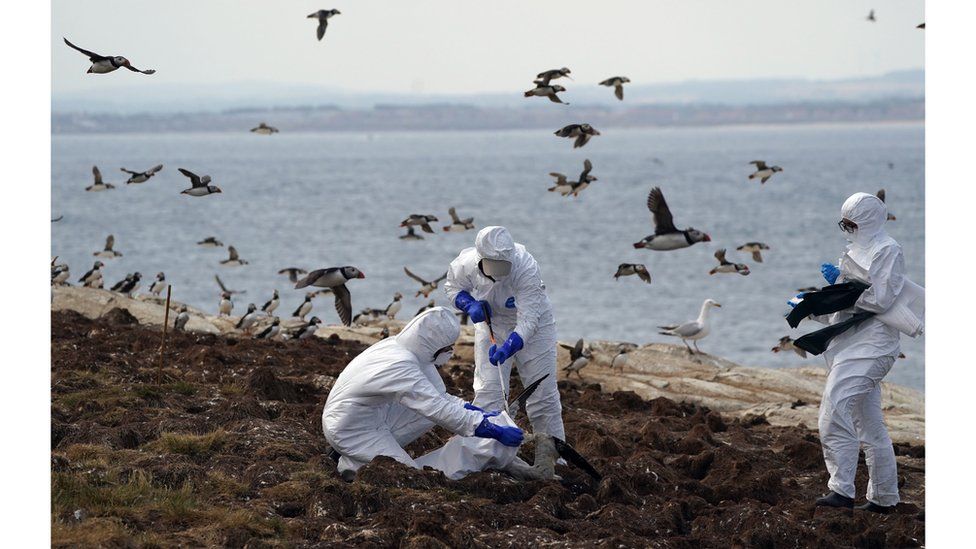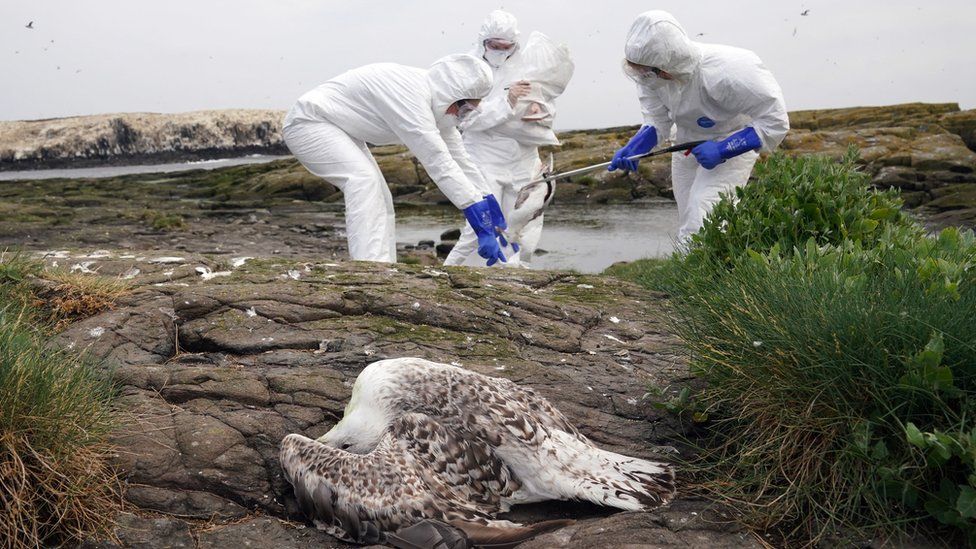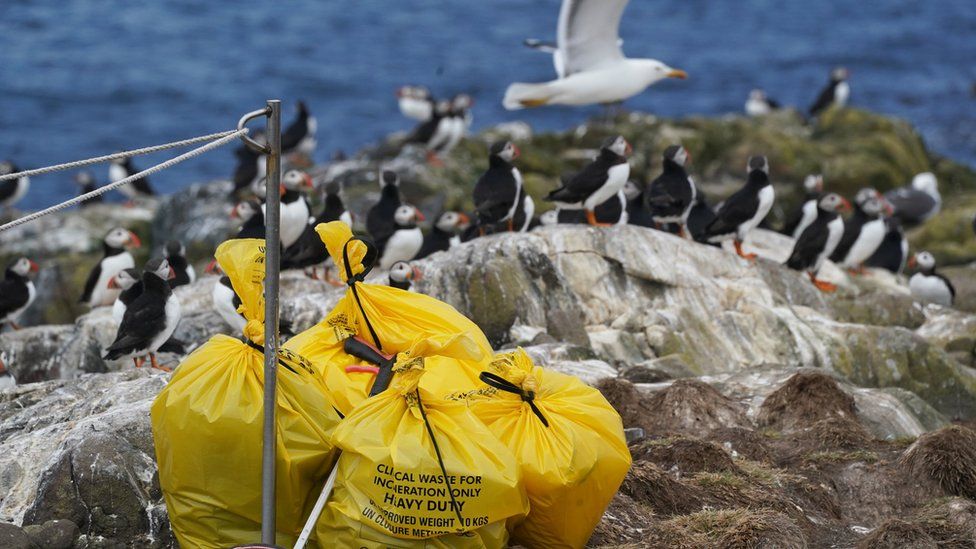The National Trust says the scale of death on the Farne Islands has not been seen in nearly 100 years.
 Image source, PA Media
Image source, PA MediaThousands of seabirds have died in an outbreak of avian flu on the Farne Islands in the worst “disaster” to hit the colonies in nearly 100 years.
The National Trust, which cares for the islands, has found more than 3,000 dead birds but estimated ten times more may have fallen into the sea.
The islands off the Northumberland coast are home to about 200,000 birds.
The charity wants an urgent response but the government said it could only take “limited effective actions”.
The Farnes are an internationally important habitat for 23 species including puffins, Arctic terns, guillemots, razorbills, sandwich terns and common terns.
They were closed to the public earlier this month to try and prevent the spread of bird flu.
Some of the dead birds found were ringed, which revealed details of their travel logged with the British Trust for Ornithology (BTO).
Casualties include an Arctic tern which had flown from the Farne Islands to Antarctica eight times during its lifetime, covering a distance of 144,000 miles (231,745km).
Also discovered was a 16-year-old kittiwake which was ringed on the islands in 2006, and a four-year-old kittiwake which may have returned to breed on the islands for the first time having spent most of its life on the North Atlantic.

Image source, PA Media
Farne Islands general manager Simon Lee said: “The National Trust has cared for the Farne Islands for just under 100 years, and there are no records of anything so potentially damaging to our already endangered seabird colonies.”
Teams of rangers who live and work on the islands have been removing the birds so they can be incinerated. They have been wearing full PPE to collect the carcasses and avoid further contamination to healthy birds.
Further south along the Northumberland coast, RSPB rangers on Coquet Island have been collecting and burying thousands of dead seabirds after bird flu was confirmed there, devastating the main breeding season.
The disease was confirmed in June at a gannet colony at Bass Rock, the world’s largest colony of northern gannets, and a number of dead birds were found washed up along the Northumberland and Teesside coasts.
Ben McCarthy, head of nature conservation at the National Trust, said: “The scale of this disaster calls for an urgent national response plan for the virus in wild birds.
“We need a more coordinated approach to ensure effective monitoring, surveillance and reporting to support research into the impacts this deadly disease is having on our wild birds across the UK.
“There is a lack of clear and effective guidance and arrangements for disease control, and we need to urgently develop mitigation measures to reduce the further spread in the coming months as birds migrate back into UK waters.”
The National Trust said it would work with conservational partners including the RSPB and BTO to help.

Image source, PA Media
The Department for Environment and Rural Affairs said: “We recognise the significant threat posed by highly pathogenic avian influenza (HPAI) to the UK’s precious wild bird populations, but there are limited effective actions that can be taken to protect them, as opposed to captive bird flocks.
“Our current policy is in line with international standards of best practice for disease control. The Animal and Plant Health Agency operates a robust, year-round programme of dead wild bird surveillance and clear public guidance has been issued not to handle their carcasses.
“Our new research consortium also funds research into how bird flu viruses are emerging in wild populations and help us understand the risk posed to both domestic and wild birds.”
The UK Health Security Agency has advised that the risk to the public is very low, but people should not touch sick or dead birds and keep any animals away. If found, please report any dead birds to Defra on 0345 9335577.

Follow BBC North East & Cumbria on Twitter, Facebook and Instagram. Send your story ideas to northeastandcumbria@bbc.co.uk.